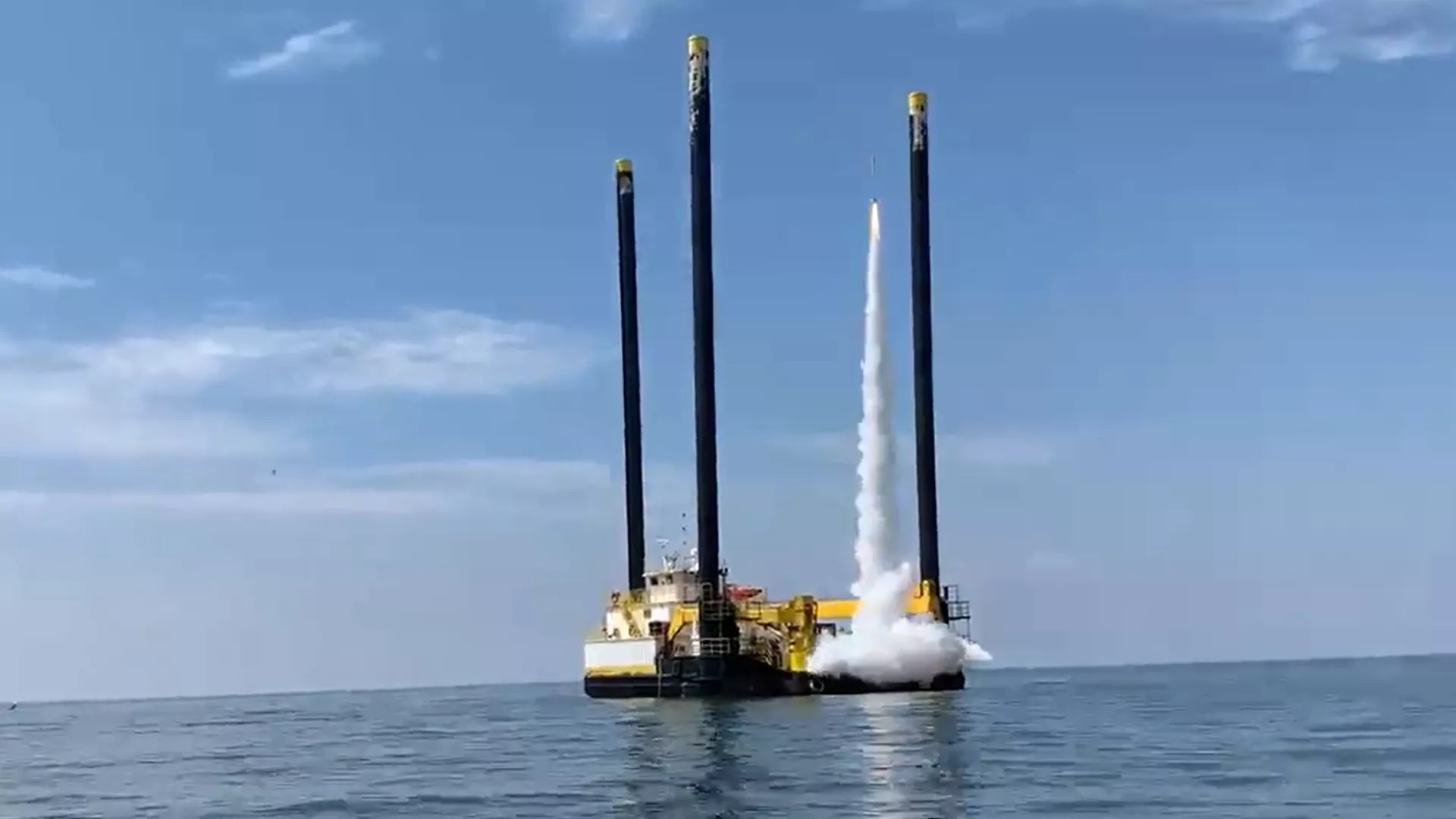24.05.2023
There's a lot of demand for space, and few places from which to launch, The Spaceport Company says.

The first mobile floating spaceport from The Spaceport Company tested commercial rocket launches in the Gulf of Mexico, in U.S. territorial waters, as this screenshot from a launch video shows. (Image credit: The Spaceport Company
The first-ever rocket launches from U.S. territorial waters were announced on Tuesday (May 23).
The Spaceport Company conducted multiple demonstration suborbital rocketlaunches on a modified ship located in the Gulf of Mexico, the company announced. Their goal is to reduce the load on busy rocket ranges and get satellites into space quicker.
"This demonstration provided numerous lessons which will be incorporated into our next project: Building a sea-based spaceport capable of orbital operations," CEO and founder Tom Marotta said in a statement.
The launches took place after The Spaceport Company secured regulatory approvals from the Federal Aviation Administration (FAA) and the U.S. Coast Guard, which conducted an environmental assessment and hazard clearance and also monitored the range. The National Security Innovation Capital program at the Pentagon's Defense Innovation Unit (DIU) was also involved in the demonstartions.
The propulsion was provided by Evolution Space, a California-based solid propulsion launch provider, while the airframes were provided by an independent contractor, Rick Maschek. Evolution and The Spaceport Company said in releases that the at-sea launch would have "fewer environmental impacts" than flights from land-based launch areas, but did not provide specifics.
A recent launch by SpaceX threw environmental assessments into sharp relief. The debut space launch of Starship, the largest launching system in the world, had to be aborted mid-flight.
Starship and its Super Heavy rocket created hazards such as billowing debris and sand, hazards that are now being evaluated by FAA (which had spent 18 months performing an environmental assessment of the Boca Chica, Texas launch.) The FAA was sued by environmental groups earlier this month, and SpaceX recently joined the aviation administration in the lawsuit.
In a recent piece in The Space Review, Marotta said that launching at sea is the best viable option to "solve the spaceport bottleneck." Proposals to build land spaceports in the U.S. have all been "delayed or permanently blocked by local community opposition", he said, while overseas options require years-long export control approvals from the U.S. State Department.
Marotta also pointed out other companies have been at sea before. Boeing partnered with Russia for 15 years for sea launching opportunities, until Russia's 2014 invasion of Crimean Ukraine severed the relationship. SpaceX is also examining offshore launch platforms, while South Korea and China have sea launch systems of their own.
Some other companies are pivoting to using small spaceports in other regions of the world, however, with options including a Nova Scotia spaceport built closely in consultation with the local community, and various launch sites in the U.K. and Europe (with some designed to use a mobile shipping container to reduce the infrastructure being left behind.)
Quelle: SC

